French
“And they were all filled with the Holy Spirit and began to speak in other tongues as the Spirit gave them utterance.” Acts 2 : 4Click here to read about our curriculum offer and download our progression maps
Why French?
At Clifton Primary School we believe that the learning of a foreign language provides a valuable educational and cultural experience for our pupils. It helps them to develop communication skills, including key skills of speaking and listening, and extends their knowledge of how language works. Learning another language gives children a new perspective on the world, encouraging them to understand their own cultures and those of others.
At Clifton Primary School, in key stage 2, we teach French to our children using the Rigolo scheme of work.
This scheme will enable children to:
- listen attentively to spoken language and show understanding by joining in and responding
- explore the patterns and sounds of language through songs and rhymes linking the spelling, sound and meaning of words
- engage in conversations and speak in sentences
- develop accurate pronunciation and intonation so that others understand when they are reading aloud
- present ideas and information orally to a range of audiences
- read carefully and show understanding of words, phrases and simple writing
- appreciate stories, songs, poems and rhymes in the French language
- broaden their vocabulary and develop their ability to understand new words that are introduced into familiar written material, including through using a dictionary
- write phrases from memory
- describe people, places, things and actions orally and in writing and understand basic grammar appropriate to the French language.
In Year 6, children are given the opportunity to take part in our French residential, where they can practise speaking, reading and listening to the language. The residential takes the children to the coast of Normandy where the children explore the culture and language by using their conversation skills in a local market and shops, and purchase key items such as a postcard and stamp and an icecream or crepe. They are encouraged to negotiate a good price on the items they purchase using their French. They write their postcard home using French phrases to explain the various places that they have visited during their stay. The children also see written French in the museums that are visited as part of the WW2 topic and speak with the guides about the events that took place on the famous beaches. As part of the visit, the children learn what it was like for the residents of France during the war years and the difference between the time they were occupied and the impact of the liberation by allied troops.
Download our Intent Statment for French






